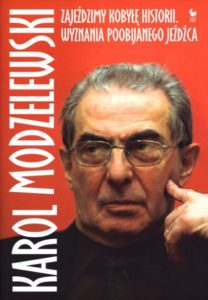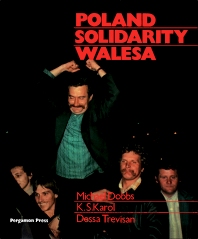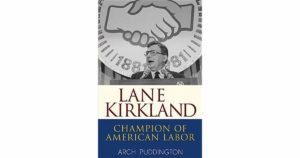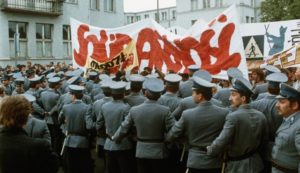 Karol Modzelewski, a historian who became a driving force in Solidarity, the labor movement that helped topple the Communist regime in Poland, and its first spokesman, died on April 28 in Warsaw. He was 81, The New York Times reports:
Karol Modzelewski, a historian who became a driving force in Solidarity, the labor movement that helped topple the Communist regime in Poland, and its first spokesman, died on April 28 in Warsaw. He was 81, The New York Times reports:
Mr. Modzelewski, whose moral obstinacy inspired and guided generations of dissidents both in his home country and abroad, is credited with coining the name Solidarity. His opposition to the regime dated to the 1950s, and he was frequently arrested and imprisoned. He is believed to have spent more time behind bars than any other dissident in Communist Poland — a total of eight and a half years….Modzelewski came to the attention of the authorities in 1964 after writing, with a fellow dissident, Jacek Kuron, “An Open Letter to Members of the Polish United Workers Party.” It was a scathing indictment of the Communist Party and its elitist practices, which the men called a betrayal of the ideals of Communism.
“That letter was the first time in my generation that two people, who were very well respected and well known, openly challenged the dictatorship,” said Adam Michnik, the founding editor of Polish newspaper Gazeta Wyborcza, who as a student nine years Modzelewski’s junior helped spirit copies of the letter abroad, the FT adds “It was criticism from a rebellious anarchist who considered that what was happening in Poland or the Soviet Union had nothing to do with the ideals of Marxism and communism,” he said. “It was a crossing of the Rubicon. It was like someone flying to the moon for the first time . . . to the moon of freedom.”
 Part of what made Solidarity successful and Polish independence possible was an international commitment to democratic norms, argues Arch Puddington, senior scholar at Freedom House. Today, that commitment is in serious doubt, he writes for The American Interest. Among the keys to Solidarity’s success, the following were crucial:
Part of what made Solidarity successful and Polish independence possible was an international commitment to democratic norms, argues Arch Puddington, senior scholar at Freedom House. Today, that commitment is in serious doubt, he writes for The American Interest. Among the keys to Solidarity’s success, the following were crucial:
- Solidarity’s status as a national movement. While it was popular among industrial workers, it also enjoyed the support of the democratic intelligentsia, a group which ranged from Catholic thinkers to former communists to liberals to aspiring entrepreneurs. Even under martial law, the authorities could only do so much to counter this resistance.
- An opposition media of unusual diversity and reach. The Solidarity underground press included regional and local publications, nationwide bulletins, and journals aimed at targeted audiences—Catholics, members of the security forces, the military, even communist functionaries.
- International labor solidarity. While some democratic governments, West Germany most notably, regarded Solidarity as an annoying obstacle to improved relations with Moscow and kept it at arm’s length, the trade union movements of Europe and especially the United States were generous with material and moral support throughout Poland’s time of troubles. Lane Kirkland, the president of the AFL-CIO, was the most stalwart advocate within the democratic labor movement—indeed, he stood as Solidarity’s most vocal supporter in the free world. ….
- International broadcasting. Since the 1950s, Radio Free Europe, the BBC, and other international broadcasting stations had exerted a powerful influence on political life in Poland. Indeed, RFE functioned as a kind of opposition press, more credible and with a greater audience than any of the communist propaganda organs. RFE’s Polish language service was regarded as “our media” by the opposition. ….
 American diplomacy. The strikes that triggered Solidarity’s formal existence took place in the waning months of the Carter presidency. The initial response of the American foreign policy community was marked by apprehension and ambivalence. Commentators fretted over the AFL-CIO for its full-throated declarations of support, arguing that if American unions felt it necessary to assist besieged Polish workers, they should do so quietly, without drawing parallels between free labor unions and broader democratic freedoms.
American diplomacy. The strikes that triggered Solidarity’s formal existence took place in the waning months of the Carter presidency. The initial response of the American foreign policy community was marked by apprehension and ambivalence. Commentators fretted over the AFL-CIO for its full-throated declarations of support, arguing that if American unions felt it necessary to assist besieged Polish workers, they should do so quietly, without drawing parallels between free labor unions and broader democratic freedoms.








